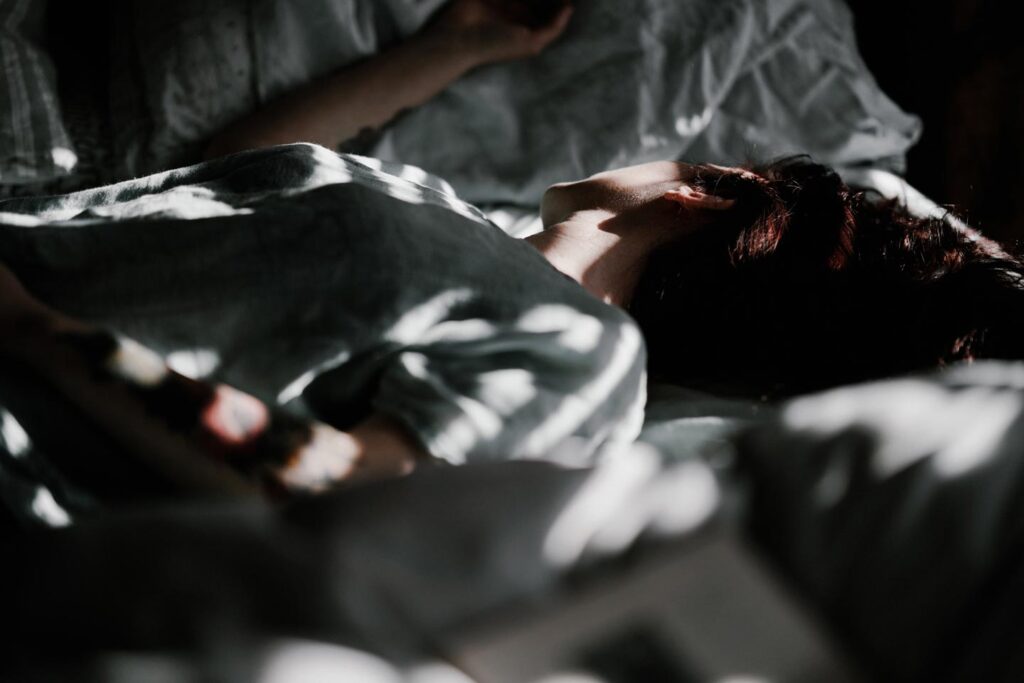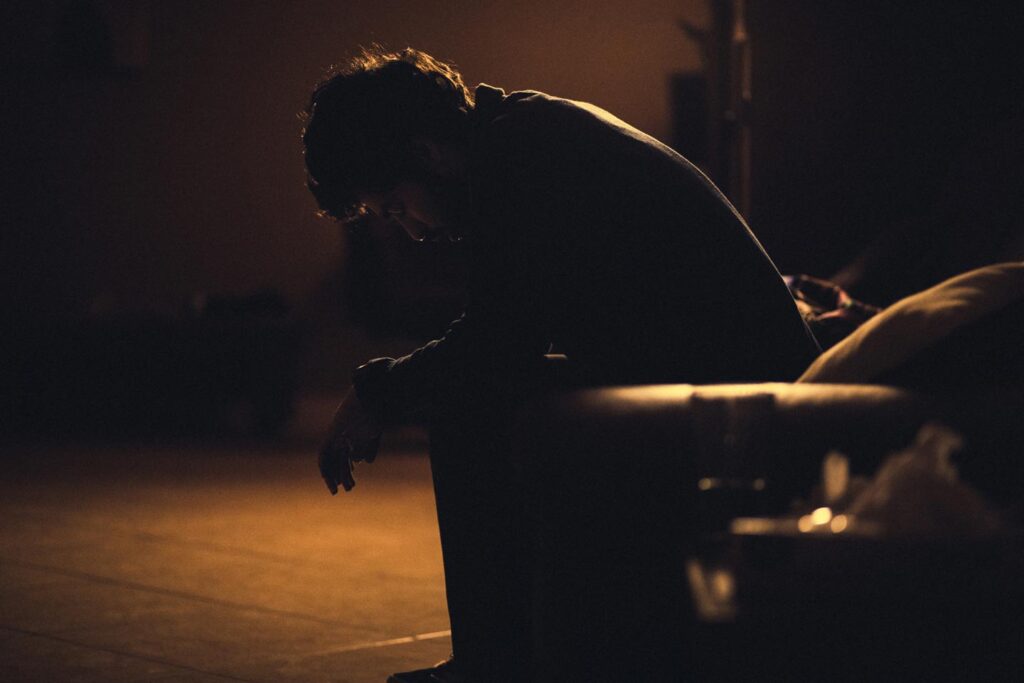The disorder known as Hypoactive Sexual Desire Disorder (HSDD) affects a person’s ability to have healthy sexual relationships. When a person has a consistent lack of sexual desire or interest, it is considered to be one of the sexual desire disorders.
We will examine the definition, incidence, causes, signs, and potential treatments for hypoactive sexual desire disorder in this extensive post. We want to raise awareness of this problem and foster understanding among those who are struggling with desire problems.
Table of contents:
- Understanding hypoactive sexual desire disorder (HSDD)
- Causes and contributing factors
- Signs of HSDD
- HSDD diagnosis
- HSDD treatment options
- Coping techniques and assistance
- Breaking the stigma
- How does one overcome hypoactive sexual desire disorder?
- What causes a lack of sexual desire in men and women?
- Conclusion

Understanding hypoactive sexual desire disorder (HSDD)
A sexual dysfunction known as hypoactive sexual desire disorder is defined by a pronounced and persistent lack of sexual fantasies, ideas, or wants, which results in a lack of interest in sexual activity. This insufficiency is unrelated to typical ageing-related changes or outside factors like stress as well as relationship issues.
HSDD prevalence
All genders, as well as sexual orientations, are affected by HSDD, but women are more likely to report experiencing it. Because of underreporting and the delicate nature of the condition, it is difficult to calculate accurate prevalence estimates. However, a sizeable fraction of the population is thought to be affected by HSDD.
Causes and contributing factors
Psychological aspects
Psychological factors are very important in the emergence of HSDD. Sexual desire can be greatly impacted by mental health issues like depression, anxiety, and past trauma. Diminished interest in sexual activities may also be impacted by body image concerns and low self-esteem.
Hormonal imbalances
Changes in testosterone and estroegen levels, in particular, can affect sexual desire. HSDD may be exacerbated by hormonal changes associated with menopause, the postpartum period, or other medical procedures.
Relationship problems
Lessening sexual desire might result from dysfunctional or unsatisfying partnerships. HSDD can develop as a result of ineffective communication, unsolved problems, as well as a lack of emotional connection.

Signs of HSDD
1. Lack of sexual fantasy
Even during personal moments or self-stimulation, people with HSDD frequently report having a noticeable absence of sexual ideas as well as thoughts.
2. Lack of interest in sexual activities
Despite attempts to begin intimacy, a hallmark symptom of HSDD is a persistent lack of interest in sexual activities.
3. Emotional distress
HSDD can significantly increase emotional distress, which negatively impacts self-worth, self-esteem, as well as general quality of life.
HSDD diagnosis
Medical evaluation
To rule out underlying medical disorders that might be causing the lack of sexual desire, a thorough medical evaluation is required when diagnosing HSDD.
Psychosocial evaluation
To investigate potential psychological issues, interpersonal dynamics, and lifestyle impacts, a full psychosocial evaluation is carried out.
Diagnostic requirements
To be diagnosed with HSDD, a person must have no sexual desire for at least six months and experience considerable suffering as a result.

HSDD treatment options
Therapeutic methods
Psychotherapy can help address the psychological issues causing HSDD and enhance sexual desire, especially cognitive-behavioural therapy (CBT) as well as sex therapy.
Medication
Healthcare professionals may recommend drugs like bupropion or flibanserin to assist HSDD patients in feeling more sexually motivated.
Lifestyle modifications
Making lifestyle adjustments, such as stress management, relationship communication improvement, and establishing healthy habits, can have a good effect on sexual desire.
Coping techniques and assistance
Open communication
Dealing with HSDD requires effective communication with partners. Understanding and support can be promoted by talking about feelings, worries, and desires.
Support groups
Joining support groups or searching for online communities can give people with HSDD a sense of acceptance as well as connection.
Breaking the stigma
Increasing public awareness: Raising public awareness of sexual desire disorders in general, as well as hypoactive sexual desire disorder in particular, can aid in eradicating the stigma associated with these illnesses.
Empathy and understanding: Having empathy and understanding for persons who are dealing with HSDD can help to create a safe environment in which they can ask for support as well as guidance.

How does one overcome hypoactive sexual desire disorder?
An individual who suffers from Hypoactive Sexual Desire Disorder (HSDD) may find it difficult to feel sexual interest as well as desire. One’s whole well-being may be affected, as it may result in emotional and interpersonal difficulties.
A thorough strategy that tackles both the medical and psychological elements of HSDD can, however, help people overcome it. We will look at many methods and therapies in this post to aid people in regaining a healthy and satisfied sexual desire.
1. Seek advice from a professional
To overcome HSDD, you must first seek expert assistance. A skilled mental health expert or a healthcare physician who specialises in sexual health should be consulted. They can perform a thorough evaluation to identify the underlying problems and create an appropriate treatment plan.
2. Determine the underlying causes
Hormonal imbalances, illnesses, medications, psychological concerns, and relationship problems are just a few of the causes of HSDD. Designing a successful treatment strategy depends on identifying these underlying causes. Hormone therapy may be necessary for hormonal abnormalities such as low testosterone levels in men or fluctuating oestrogen levels in women.
3. Treatment of medical conditions
HSDD might be influenced by medical illnesses like diabetes, thyroid problems, or cardiovascular problems. Sexual desire may be increased by managing these diseases with appropriate medical care and lifestyle modifications.
4. Examine the medication
Sexual desire might decline as a side effect of several medications, such as antidepressants as well as antihypertensive meds. If at all feasible, discuss alternate medications with your doctor that might be less likely to cause sexual side effects.
5. Psychological guidance
Sexual desire may be influenced by psychological elements, including stress, worry, and past traumas. Having counselling or therapy sessions with a trained practitioner can assist in resolving these problems and enhancing general sexual health.
6. CBT: Cognitive Behavioural Therapy
Psychotherapy such as CBT has the potential to be successful in treating HSDD. It assists people in recognising and refuting harmful thought patterns as well as assumptions about sexual desire, resulting in more positive plus healthy attitudes toward sexuality.
7. Improving communication
To overcome HSDD, spouses must have open and honest communication. To handle sexual concerns in a supportive and caring setting, it can be helpful to express feelings, desires, and concerns. This can result in a greater knowledge of one another’s needs.
8. Sensate attention
Sensate focus exercises are frequently employed in sex therapy to improve sexual closeness and enjoyment. With an emphasis on senses rather than performance or goal, these exercises entail non-sexual touch as well as exploration of each other’s bodies.
9. Emotional connection and closeness
Developing emotional closeness is essential for overcoming HSDD. Spending time together, expressing affection, and expressing gratitude are examples of activities that promote emotional connection and can have a beneficial impact on sexual desire.
10. Include a regular exercise program
Regular exercise can increase sexual desire by increasing blood flow, lowering stress levels, and promoting self-esteem. Exercise can also improve the body’s natural feel-good hormones, endorphins, by increasing endorphin production.
11. Reduce stress
Sexual desire may be negatively impacted by high amounts of stress. Using stress-reduction strategies like yoga, meditation, and mindfulness can help you manage your stress and enhance your overall sexual health.
12. Try out some new activities
Trying out different sexual pursuits or fantasies can rekindle desire and produce a sense of novelty. However, it’s imperative to make sure that both partners are at ease and agree to these activities.
13. Deal with issues in relationships
Relationship issues, including unsolved disputes or a lack of emotional ties, might exacerbate HSDD. To address these problems and promote a healthier relationship dynamic, couples counselling may be helpful.
You might also be interested in: Complete Guide on Couples Therapy: What to Expect and When to Go
14. Think about medication
Sometimes, medical professionals will recommend drugs that have been specifically approved to treat HSDD. These drugs may aid in enhancing sexual desire, but before using them, you should carefully evaluate the pros and downsides with a medical expert.
Addressing physical, emotional, as well as relationship issues is all part of the process of recovering from hypoactive sexual desire disorder.
To have a meaningful and satisfying sexual life, one can seek professional advice, uncover the underlying causes, and put into practice a thorough strategy that incorporates counselling, lifestyle modifications, and communication techniques.
It’s important to keep in mind that recovery may require time, perseverance, and work, but with the correct assistance, people can regain their sexual drive and general well-being.

What causes a lack of sexual desire in men and women?
The condition known as Hypoactive Sexual Desire Disorder (HSDD), which affects both men and women, can have a number of causes. The following are some typical causes of decreased sexual arousal:
Hormone disharmonies
Hormone fluctuations, such as low testosterone in men or unbalanced oestrogen in women, can have a big impact on sexual desire.
Medical conditions
Libido can be impacted by a number of medical diseases, including diabetes, thyroid disorders, cardiovascular problems, and chronic illnesses.
Medications
A number of drugs, including hormonal birth control, antidepressants, and antihypertensive, might have side effects that lessen sexual desire.
Psychological factors
Stress, anxiety, depression, and other mental health conditions can reduce a person’s interest in and desire for sex.
Relationship problems
Issues in a relationship, unresolved disputes, a lack of emotional closeness, or communication issues can all have a detrimental impact on sexual desire.
Exhaustion and Fatigue
Having poor energy and a lack of interest in sexual activities can both impair sexual desire.
Past trauma
A decline in sex interest can result from past trauma, whether it was caused by sexual or non-sexual situations.
Body image problems
Sexual confidence and desire can be impacted by a negative body image as well as low self-esteem.
Lifestyle variables
A decrease in sexual desire can also be attributed to unhealthy lifestyle choices such as excessive alcohol consumption, smoking, and a poor diet.
Menopause and old age
Age-related changes in hormone levels, as well as physical health, can cause a natural fall in sexual desire in both men and women. In addition, hormonal changes during menopause may cause women to have less desire.

Conclusion
A person’s relationships and quality of life can be profoundly impacted by hypoactive sexual desire disorder, a complicated as well as diverse issue.
We may encourage more compassion and support for individuals suffering from desire disorders by addressing the prevalence, causes, and symptoms, as well as accessible treatments for HSDD.
Enhancing the well-being of people with HSDD and establishing an inclusive as well as compassionate society requires breaking down stigma, enabling open communication, and advancing research.
